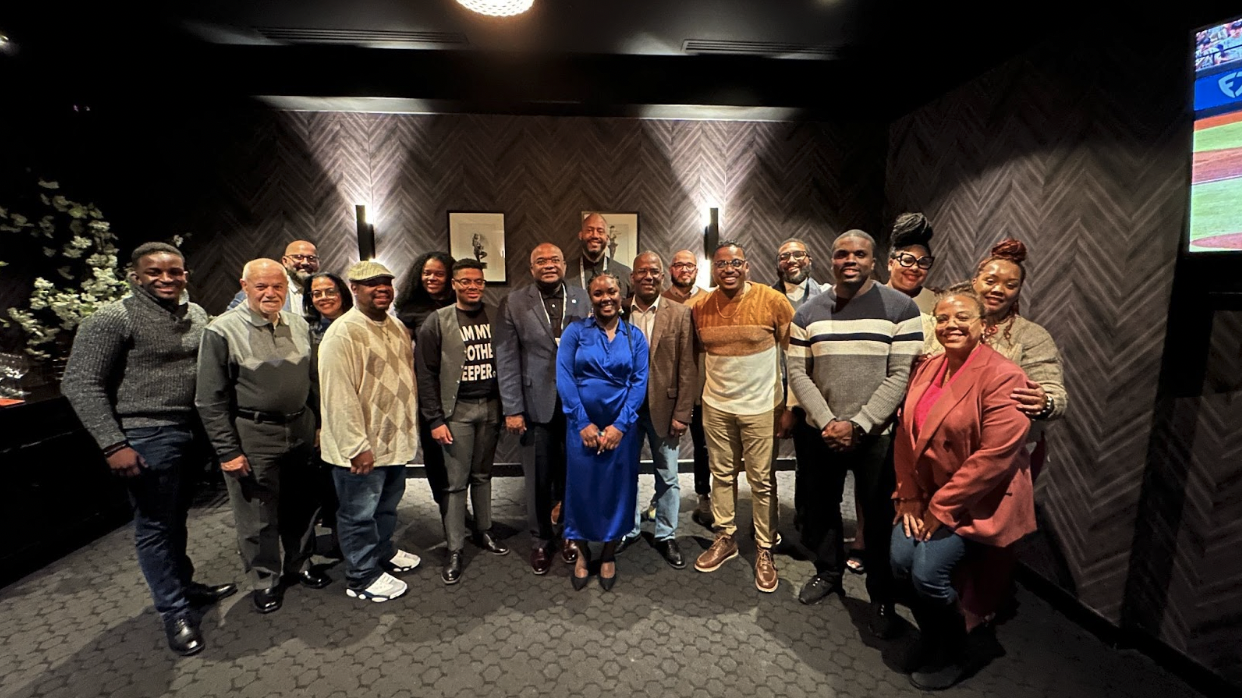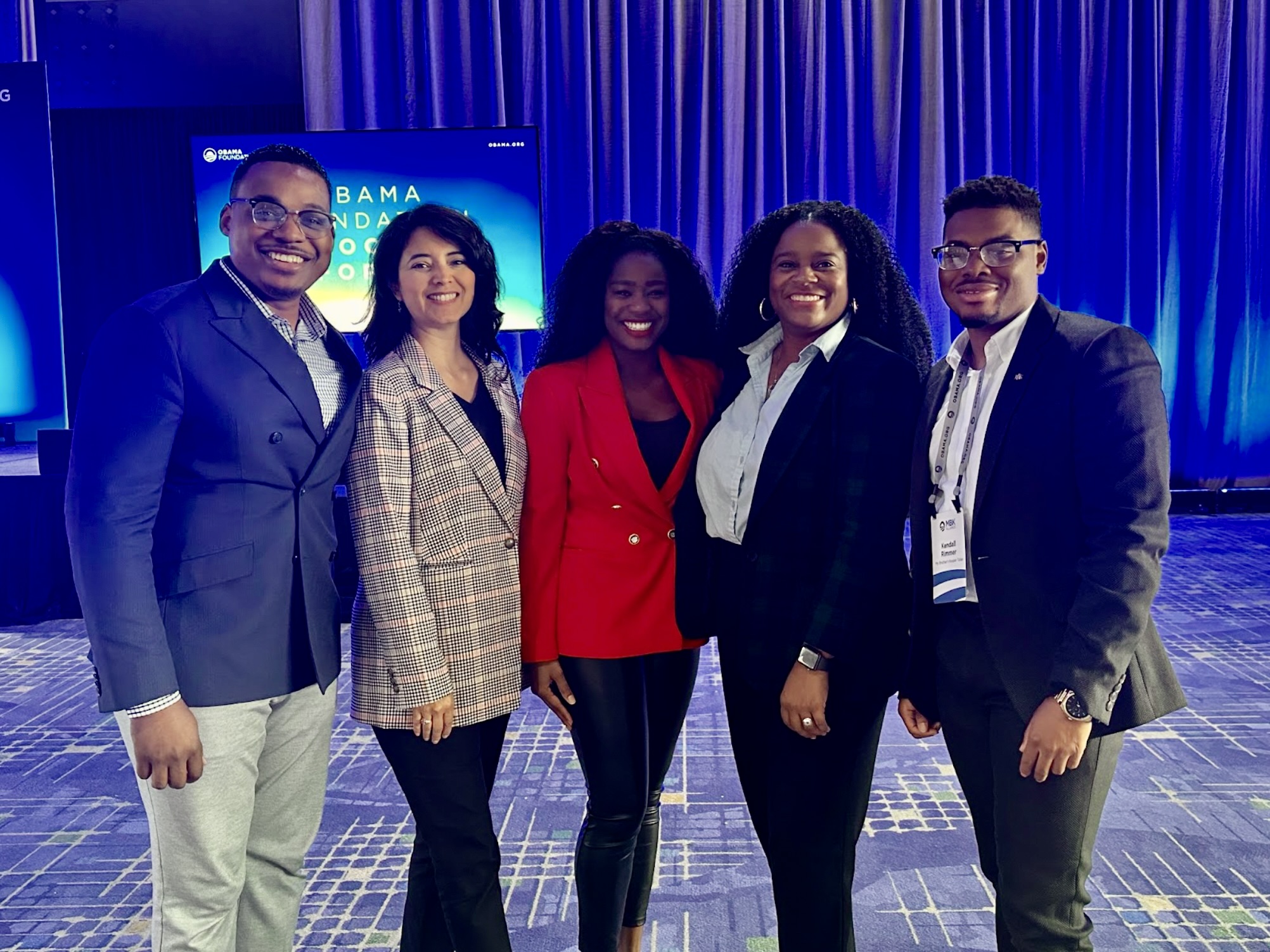From left to right: MBK Managing Director BerThaddaeus Bailey, City of Tulsa Chief of Resilience and Equity Krystal Reyes, Obama Scholar Amanda Morrall, ImpactTulsa Executive Director Ashley Philippsen, and Manager of MBK Tulsa Strategy Development and Implementation Kendall Rimmer
By Berthaddaeus Bailey
During the first week of November 2023, members of the My Brother’s Keeper (MBK) Tulsa team and the City of Tulsa attended the MBK Fall Convening and Democracy Forum in Chicago, Illinois. During this collaborative event, the four MBK Model Communities and 27 certified communities immersed themselves in an intervention design framework, exploring how evidence-based practices could be applied to advance the six MBK Milestones. Model Communities, including Tulsa, actively participated in panels and joint sessions, sharing insights that will shape the path forward for other cities embarking on population level change in their communities.
Some of the lessons from the convening centered on sustainability of the work including: How will cities institutionalize and formalize via municipal budgets and policy support for Black and Brown youth, as well as other vulnerable populations? Yonkers serves as an inspiring example, having integrated MBK into the state budget, resulting in the allocation of hundreds of millions of dollars. Further conversations are needed locally to understand the opportunity in state and city budgets to do the same.

Shown here: Dr. Adren O. Wilson, Executive Director of My Brother’s Keeper Alliance and the leaders of MBK Alliance Model Communities (Newark, Omaha, Tulsa, and Yonkers).
A notable push was for Tulsa to embrace grassroots approaches focusing on crime prevention and intervention, recognizing that these efforts are essential to decreasing crime rates. Crucial to this approach is working alongside local law enforcement for real-time disaggregation of crime data by factors such as geography, time of day, and non-fatal shootings. This nuanced understanding is imperative to move the needle forward and implement targeted strategies. Omaha’s success, with the mayor rallying corporations and communities to collectively address crime, highlights the impact of a united front against this common challenge. As we deliberate on priorities, it’s essential to scrutinize municipal budgets, echoing the question, “Where are priorities reflected in municipal budgets?”
Several quotes from other communities rang true for our local context. One in particular stated that “Most of our cities are resource rich and coordination poor.” This sentiment underscores the need for a coordinated effort in Tulsa to effectively address the multifaceted challenges faced by our youth. We must put the emphasis back on the importance of community engagement and collaboration.
Communities, as emphasized during the forum, trust consistent execution more than consistent strategizing. We must turn the strategy into action to begin the process of assessing what is and will work for our local context. In that vein, if we want to know how we’re doing and progressing, we must only ask ourselves, are we closer to achieving our mission? Our aligned mission must be the metric.
As we concluded the Fall Convening and the 15-year celebration of President Obama’s historic election victory, the former President reminded us that if you find yourself privileged enough to be in this work, always remember that it is a privilege. We are all privileged. We are in service to those who are less privileged than we are. The moment you lose sight of that, it is time to get out of this work.” Let the echoes of the MBK Fall Convening and Democracy Forum guide Tulsa’s journey toward empowering its youth and building a more inclusive future.

